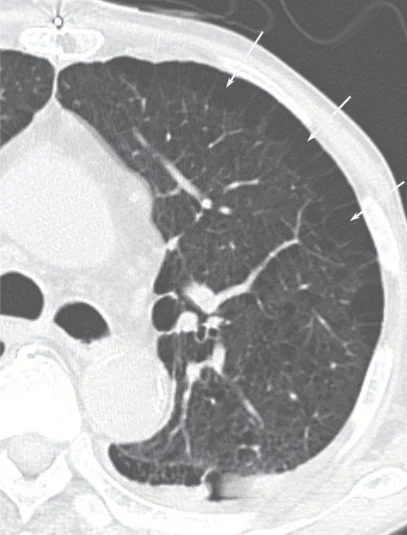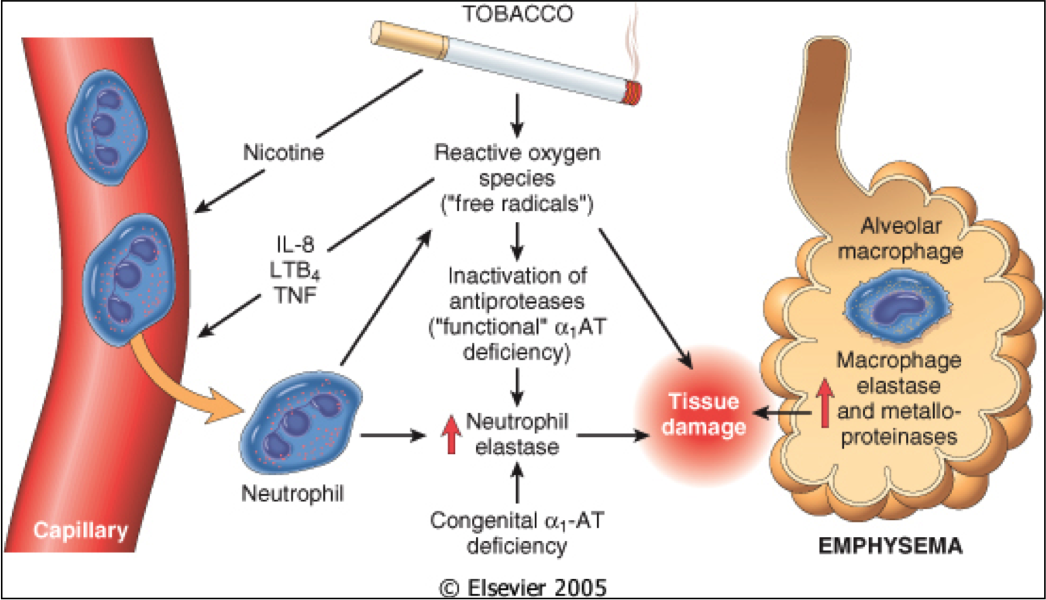Mild Background Emphysema
What Does “Mild Background Emphysema” Mean?
Dear Dr. Mahler:
Can you tell me what is “Mild background emphysema.” Does this mean I have emphysema or something else?
Rachel from Coronado, CA
Rachel,
Your question about “mild background emphysema” sounds like a phrase reported by a radiologist who interpreted either a chest x-ray or a CT scan of the chest. Is that correct? Most primary care professionals and pulmonologists do not generally use such a phrase.
What Does “Mild Background Emphysema” Mean?
This phrase means that there is evidence of some emphysema most likely on a CT scan of the chest as shown below by the white arrows. The arrows point to black areas in the periphery of the lung (next to lining around the lungs – called the pleura). The areas appear black because the tissue and small blood vessels have been destroyed leaving mainly air – which appears black.
CT scan shows emphysema in the left lung. Arrows show “dark” areas in periphery of the lung with no blood vessels due to emphysema.
How Does Emphysema Develop?
Cigarette smoking causes inflammation in the lung including an increase in a type of white blood cell called a neutrophil. The neutrophil releases certain digestive enzymes into the lung that cause destruction and airspace enlargement. This pathway is shown in the figure below.
Pathway whereby cigarette smoking causes neutrophils to release of an enzyme called elastase that can destroy lung tissue and lead to enlargement of air sacs (called alveoli).
Rachel – Based on your report, it appears that you do have emphysema which may or may not cause you any problems. The most common symptom of emphysema is shortness of breath with activities.
If you haven’t already done this, I would ask your health care professional to order breathing tests (called pulmonary function tests – abbreviated PFTs). These tests evaluate how your lungs are working and whether you have airflow obstruction (narrowing of breathing tubes). Many but not all individuals with emphysema have airflow obstruction.
You did not mention if you smoke now or smoked in the past. It is important not to smoke and to avoid inhaling airborne irritants – or “bad air.”
Detailed information about different types of emphysema is available in a recently published medical article.
Please note, the advice provided is not a substitute for asking your health care professional about your specific situation.
Sincerely,
Donald A. Mahler, M.D.


